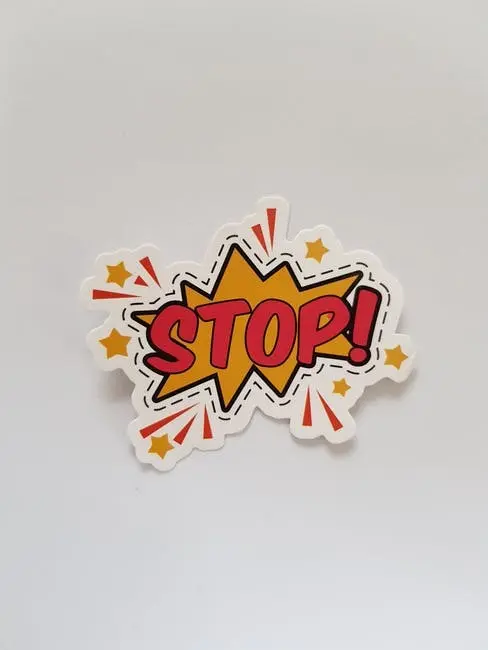
An anxiety attack or panic attack is a brief experience of intense fear or anxiety. It can be overwhelming and often feels like it is happening for much longer than it is. Anxiety attacks are also much more common than many people realize. About 35% of people in the United States will have a panic attack at some point in their lives.
Many people who experience anxiety attacks will only have a few in their lives or may have a number of them within a stressful period. Others live with panic disorders which are even more debilitating.
Whether you’ve had one anxiety attack or multiple, you can stop a panic attack with certain tools and practices.
Understanding what an anxiety attack is, its symptoms, and even its causes can help you rationalize the experience. You can explain to yourself that the attack is not a true signifier of pain, danger, or trauma but a mental one.
Essentially, an anxiety attack is an overwhelming sense of dread that leads to physical symptoms like:
Although it may feel like it lasts forever, an anxiety attack will rarely last longer than half an hour, and most are under 15 minutes in length. Knowing that can even help you slow one down, reduce the effects, and feel better in the moment.
Anxiety attacks are a response to the body reacting to perceived danger. The issue is that most anxiety attacks don’t occur in the face of actual danger, but adrenaline induces those sensations in safe situations. This can happen before giving a speech or traveling but may also occur when someone is relaxing, which is intrusive and frustrating.
Some reasons or risk factors that can lead people to experience these anxiety attacks without an immediate threat of danger include:
Stopping an anxiety attack once it begins can be difficult as you are amid such intense feelings of fear, but you can practice methods that help slow down your heart rate and calm you in those moments.
It can also be helpful to have a support person nearby or accessible. Ask a trusted friend or family member if you can call them when you are having an anxiety attack. They can talk you through it, suggest coping methods that your mind may not think of at the moment, or simply listen to you.
Beyond having help from someone you trust and feel comfortable with, you can use the following tools to stop an anxiety attack in its tracks:
Anxiety attacks often lead to hyperventilation, but intentional breathing leads to lower cortisol levels and a leveled oxygen intake. Take deep breaths in through your nose and out through your mouth while you feel the air flow into your stomach, and then leave. Focusing on these motions and intentions takes your mind off the fear.
This may be the more challenging method, but it can be helpful for those that gain a sense of calm from facts and rational thinking. Acknowledge you are having an anxiety attack and that this feeling is temporary. Reminding yourself that you are not in danger and that you will feel better within the hour can help you to relax.
Take note of your environment by using your five senses. Pay attention to five things you see, four things you hear, three things you feel, two things you smell, and one that you taste. This will base you back into reality rather than the panic.
If your anxiety is triggered by a specific situation like flashing lights or movement, close your eyes and rest. Find a quiet place like the bathroom, go outside, or even listen to music on your phone with your eyes closed to guide you back into a calmer state.
Muscle relaxation eases your body’s tension. Take an inventory of your body. Start from your neck and work down, tensing each muscle and then relaxing it, feeling it melt into the floor, chair, or bed. By the time you’ve worked your way to your feet, your anxiety should ease.
Stopping an anxiety attack is an important skill to learn, but it is only temporary. Whether you have a panic disorder or not, it is essential to prevent further anxiety attacks through long-term treatment.
If someone experiences persistent anxiety, they may turn to drugs or alcohol as a form of self-medication. This method is unhealthy in that it can worsen anxiety symptoms and cause substance use disorder (SUD). To prevent SUD, it is important to get your anxiety under control.
With professional intervention, panic attacks and disorders are treatable. Counseling is effective for adjusting your thinking and behaviors with the assistance of a therapist. Many people find solace in therapy and discover it is enough to get their anxiety attacks under control.
Others may require medication to reduce the symptoms and regularity of attacks. In addition to therapy and medication, mental health professionals will recommend a balance of nutrition, exercise, rest, stress management, and a support system.
Struggling with anxiety attacks is overwhelming. You shouldn’t have to maneuver your life to fit the uncertainty of anxiety attacks. Instead, learn how to control your panic and stop an attack in its tracks with effective relaxation methods. Here at California Care Detox & Treatment, we offer customized care for those in our facility. We treat anxiety and panic disorders as well as co-occurring substance abuse. Our goal is to get you back to living your life to the fullest. We will help you learn how to stop anxiety attacks and prevent future ones with ongoing care and attention. Our treatment center is near the ocean, offering various forms of exercise and relaxation to meet everyone’s unique comfort level. Our clients will benefit from our services, such as group therapy, art therapy, yoga, and hiking. To learn more about how we can help you, call us at (949) 281-0632.